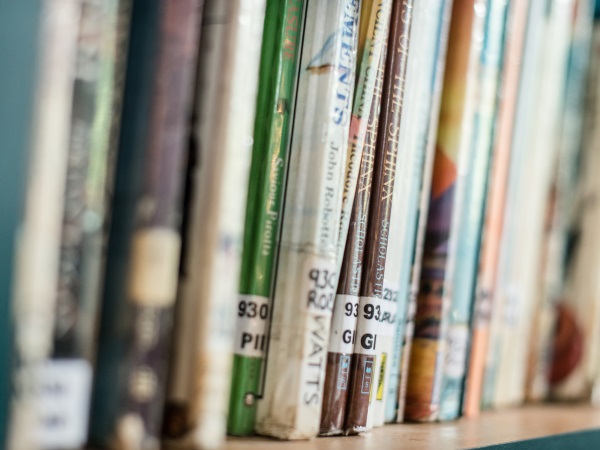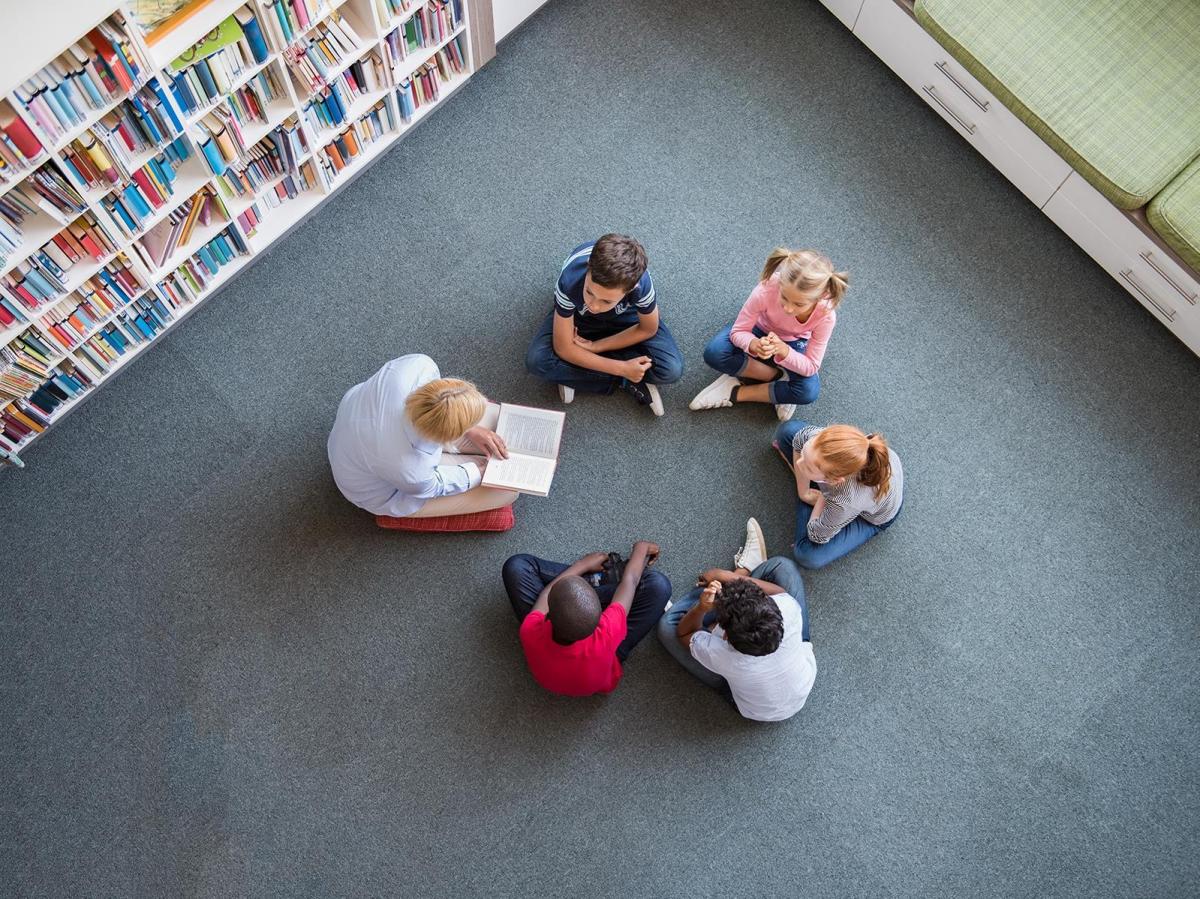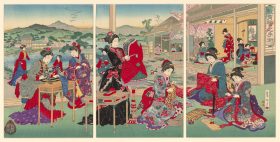Image: Deakin University.
From diverse representation to digital detox, children’s literature is a hot and sometimes highly contested topic. People have strong feelings about their childhood favourites and parents are often divided about what they think their kids should be reading.
‘There’s a bit of a sense of nostalgia about children’s literature,’ says Dr Kristine Moruzi, Senior Lecturer in Writing and Literature at Deakin University, which is the only university in Australia currently offering children’s literature as an area of study at both undergraduate and postgraduate level.
‘People sometimes like to read to their kids the things that they read as children themselves, which is super important,’ she says. ‘But on the other hand, sometimes those stories aren’t as relevant today. It’s exciting to put new and different kinds of books into children’s hands at the same time, because in the publishing industry today there’s a slow progression toward more diverse and inclusive protagonists.’
Children’s literature plays an important role in a child’s development. It builds their vocabulary and creates a bond with the person reading to them. Books also feed the imagination in a different way from a more visual medium like television.
Stories spark imaginative potential. There are gaps in books that require your imagination to fill in.
‘Stories spark imaginative potential. There are gaps in books that require your imagination to fill in, while TV doesn’t necessarily have those gaps,’ Moruzi explains. ‘Historically that’s important because there’s a long history of books not necessarily featuring lots of female protagonists for example, but girls just put themselves into those stories.’
Nonetheless, children do want to see themselves, their families and their lives reflected in the books they read – and increasingly, underrepresented readers and writers are organising to make this a reality.
Moruzi points to recent international campaigns around hashtags like #WeNeedDiverseBooks and #OwnVoices which challenge the prevailing biases of children’s publishing. ‘These activist groups are agitating for more diversity in the publishing industry, and that’s at both the writer and illustrator level and also among editors and publishers, so we get more diversity in the kinds of stories being told, and who is telling them,’ she says.

Image: Deakin University.
Moruzi, whose research focuses on Australia, New Zealand, and Canada, says that the publishing sector across these countries is going through similar trajectories but with differences that reflect ‘the particularities of culture and nation’. In Australia, she is excited by work from Indigenous publisher Magabala Books, the #LoveOzYA hashtag celebrating Australian Young Adult writing, and the recent collection Meet Me at the Intersection that highlights writers who are First Nations, People of Colour, LGBTIQA+ or living with disability.
A dearth of statistics on diversity, however, means that it’s difficult to assess the extent of underrepresentation. ‘There’s some decent American statistics [in terms of race] but we don’t have the equivalent statistics in Australia,’ Moruzi says. ‘Part of having a better, more informed conversation is having better data.’ In Australia, the Stella Count has surveyed the gender makeup of authors and book reviewers since 2012, and the forthcoming First Nations and POC Writers Count (currently crowdfunding) will look at First Nations and people of colour writers if funded.
But there’s still a long way to go before all children can easily access books that feature characters like themselves – and there are some questionable texts that remain in circulation.
‘Studying children’s literature allows us to think more critically about texts for young people, and we all ought to have a more critical gaze because there’s some really shocking stuff that is still being published,’ Moruzi says.
Building skills in the analysis of children’s literature is particularly important for primary and secondary teachers, librarians, and people in the children’s book publishing industry – as well as anyone who wants to write for young people.
‘So you want to write a young adult novel? Might be good to study some, and to be reading quite widely beyond what you’re traditionally reading yourself, because that helps inform your writing in interesting and useful ways,’ Moruzi says.
Deakin offers children’s literature as a major within a Bachelor of Arts, as a Graduate Diploma in Children’s Literature, or as a specialisation within the Master of Arts (Writing and Literature), and all levels of study can accommodate part-time or off-campus students. Students can also take a cross-disciplinary specialisation across children’s literature and creative writing, and write a children’s book as part of a supervised masters degree that knits together the critical and the creative.
Deakin has a fairly unique focus that brings together the scholarship of children’s literature alongside the production of texts for young people.
‘Deakin has a fairly unique focus that brings together the scholarship of children’s literature alongside the production of texts for young people,’ Moruzi says.
Even for those who are not contemplating a career in an associated field, studying literature can help students develop lifelong skills. ‘Critical thinking, communication and problem solving skills are the top three things that you get when you study literature and writing in a sustained, engaged kind of way. Those are fabulous skills that you can turn to in any discipline no matter where you are in the arts community or elsewhere,’ Moruzi says.
For postgraduate students in particular, study can sharpen writing ability and make research less daunting. ‘It’s a different way of thinking about the world. It can give you some real confidence to be able to come back and study at a postgraduate level,’ Moruzi says.
There are skills you may already have, she continues, but ‘the scholarly expectations can help you shift them into a more sophisticated range.’
Find out how you can study children’s literature at Deakin University.





